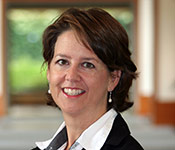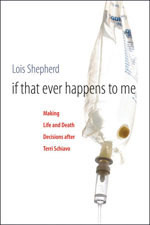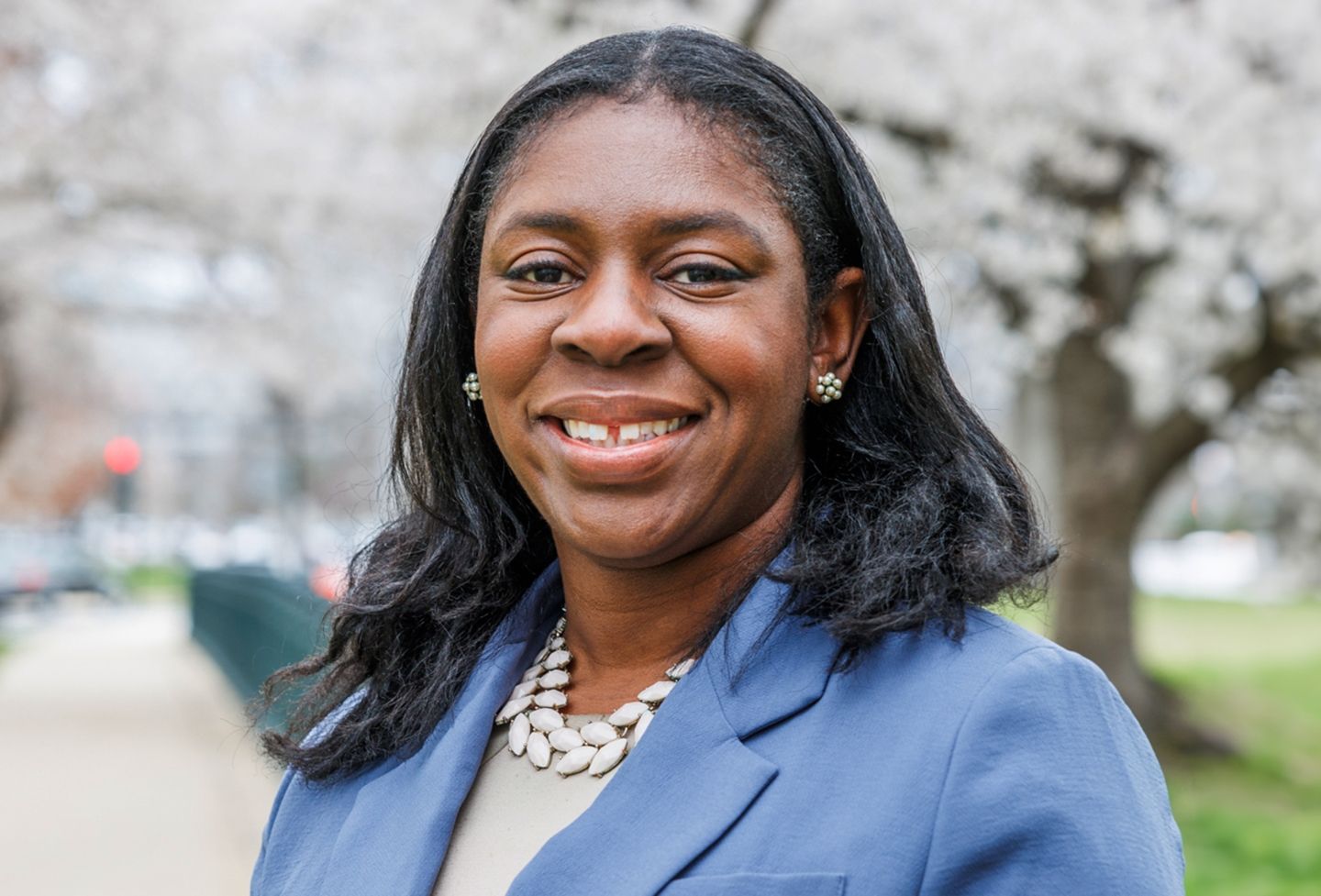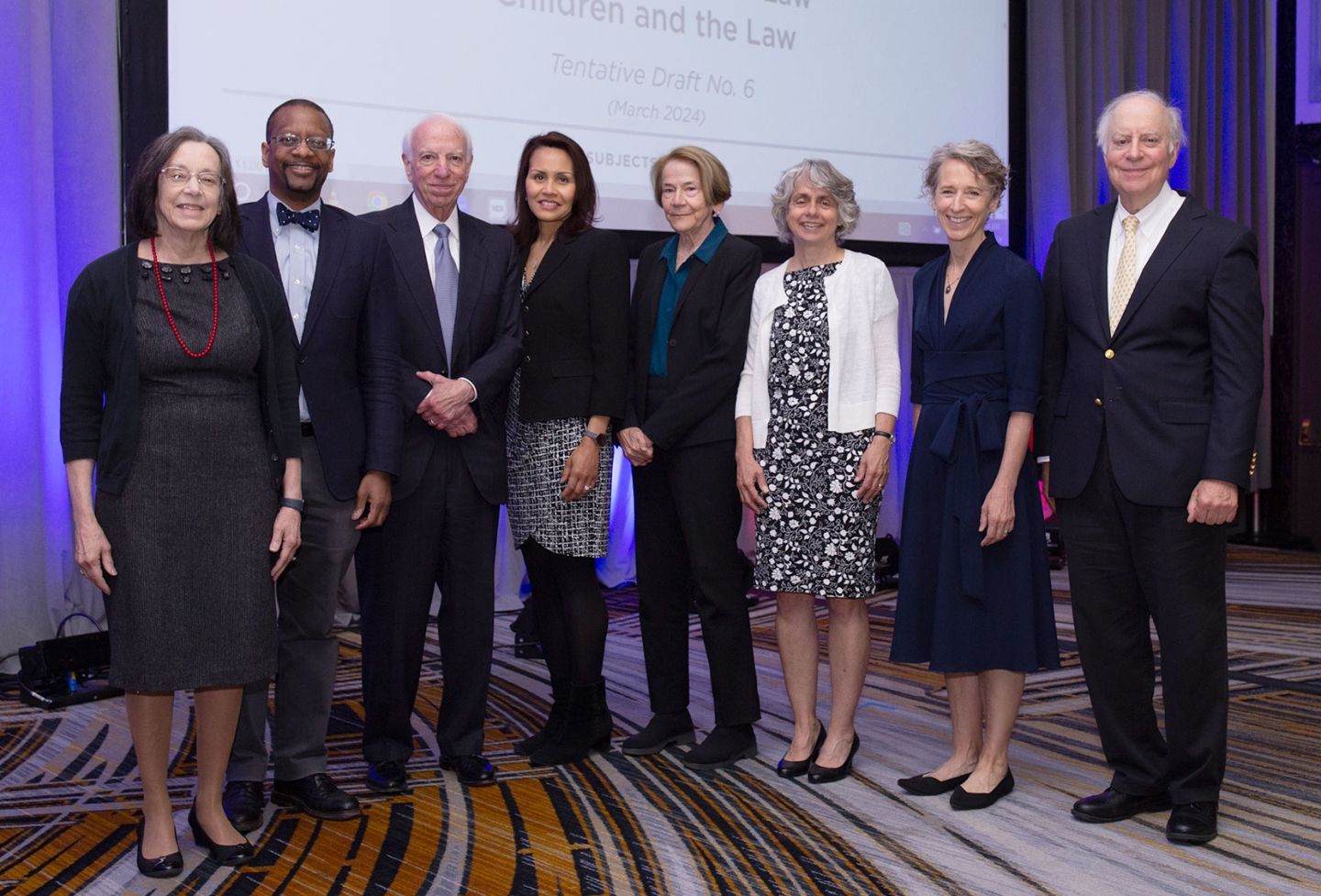Professor Lois Shepherd's Book Examines 'Making Life and Death Decisions After Terri Schiavo'
Every day, thousands of people quietly face end-of-life decisions as agonizing as those made famous in the Terri Schiavo case. Throughout that controversy, politicians, religious leaders and legal and medical experts made emphatic public statements about the facts and offered even more certain opinions about what should be done.

In her upcoming book, "If That Ever Happens to Me: Making Life and Death Decisions after Terri Schiavo," professor Lois Shepherd details why simple answers were not right for Schiavo and are not right for end-of-life decisions today.
Schiavo collapsed in her Florida home in 1990, suffering from heart failure that led to severe brain damage because of lack of oxygen. After eight years of caring for his unresponsive wife, who was diagnosed as being in a persistent vegetative state, Michael Schiavo began a seven-year legal battle to have her disconnected from her feeding tube.
Terri's parents, Robert and Mary Schindler, were opposed, arguing that Terri was conscious. Michael ultimately transferred his authority over the matter to the court, which determined that Terri would not wish to continue life-prolonging measures. The 41-year-old died in March 2005, nearly two weeks after doctors removed the feeding tube that had sustained her for 15 years.
To many, courts were either ordering Schiavo's death by starvation or vindicating her constitutional rights. Both sides called for simple answers.
 In her book, Shepherd looks behind labels like "starvation," "care" and "medical treatment" to consider what care and feeding really mean, when feeding tubes might be removed, and why disability groups, the people of faith and even the dying themselves often suggest end-of-life solutions they might later regret.
In her book, Shepherd looks behind labels like "starvation," "care" and "medical treatment" to consider what care and feeding really mean, when feeding tubes might be removed, and why disability groups, the people of faith and even the dying themselves often suggest end-of-life solutions they might later regret.
For example, Shepherd cautions against living wills as a pat answer. She provides evidence that attempting to create letter-perfect documents can actually weaken, rather than bolster, patient choice.
The actions taken and decisions made during Schiavo's final years will continue to have repercussions for thousands of others — those nearing death, their families, health-care professionals, attorneys, lawmakers, clergy, media, researchers and ethicists, said Shepherd, associate professor of public health sciences and professor of law at UVA
"'If That Ever Happens to Me' is a wise and sober analysis written with the desire to draw constructive lessons from a national tragedy," wrote Dr. Joseph J. Fins, chief of the Division of Medical Ethics at Weill Cornell Medical College, in a review of the book.
"Shepherd is to be congratulated for ratcheting down the red state-blue state polemics of Schiavo and for her careful parsing of the medical, legal and bioethical dimensions of the case. To her credit, she conceives of a sensible alternative philosophy of care which will help define our collective obligations to those in liminal states of consciousness. This important formulation will lead to more proportionate care for this vulnerable population, balancing both their right to die with the right to receive care."
Shepherd's book will be released June 1 by the University of North Carolina Press. In a Q&A with the publisher, Shepherd said it was important to re-examine the Schiavo case to "figure out how things got so crazy. We had a tremendous clash of right-to-die and right-to-life politics. But we can't just dismiss it as being about politics, either, because there was such broad public interest in the case.
"For a number of years, there's been a legal and medical consensus that removing a feeding tube from a person in a permanent vegetative state is acceptable — but a good portion of the American public seemed surprised about that and uncertain that it was right. So much of the commentary at the time painted the story as being about 'starvation' or, on the other hand, 'what Terri wanted.' Neither of these is accurate. Nor can we answer the question of what to do in these cases just by focusing on people's rights. We also have to look at people's responsibilities."
In the Q&A, Shepherd also said Schiavo's "feeding tube should have been removed because she had no hope of recovering consciousness, but I think it should have been done not out of concern for the person she had been (the 'pretty' pre-collapse Terri), but for the person she was afterward. For 15 years, she was kept alive only for other people, not for herself, and that is an ultimate (if unintended) abuse of a person."
When asked how she hopes to reframe some of the issues surrounding the controversy, such as respect, the value of life and the right to die, Shepherd said, "In the book, I urge that we move away from framing these issues primarily in terms of a trade-off or balancing of rights — the right to die or the right to life — and think more broadly about our responsibilities to respect and care for people, especially those who are vulnerable."
Founded in 1819, the University of Virginia School of Law is the second-oldest continuously operating law school in the nation. Consistently ranked among the top law schools, Virginia is a world-renowned training ground for distinguished lawyers and public servants, instilling in them a commitment to leadership, integrity and community service.


